There’s a lovely Zen tale of two monks, an older monk and a younger. They come to a river and where a beautiful woman is standing near the banks. She is visibly in distress and asks the monks to help her cross. So the older monk picks her up and assists her across the river. A few hours later, the younger monk turns to the older and says, “you really shouldn’t have done that.” To which the first monk replies, “Brother, I set her down on the other side of the river. Why are you still carrying her?”
In times of great stress – or dare I say crisis – we can examine our actions and those of other people become more instinctual and less calculated. We see the true nature of others. Are they givers or takers. Are they hoarding toilet paper or delivering groceries to the elderly? When was the last time you were in a crisis like the one you’re sitting with today? When was the last time you feared for the life of a loved one? When was the last time you feared you may not have a job tomorrow? When was the last time you felt alone and secluded from your world?
While not at all the intention of this post, as I write this I am called to think of the healthcare workers taking care of our grandparents. The unemployed worker who lost his job to technology. And I’m struck by the image of a man sitting for weeks and months in solitary confinement. Those are other humans living with what we’re feeling times ten…every day of their life.
But back to the story at hand. This little fable reminds me of how easy it is for me to judge someone else’s actions but through the lens of my motives. The older monk and the younger monk could have carried out the exact same task but because of their intentions the judgement (of self and others) is completely different. The older monk has a clear conscience, it’s the younger monk who’s still holding the hand of the beautiful maiden.
I’m also reminded of my beloved teacher Baba Ram Dass who continued to teach us till his dying breath to “be here now.” Who knows how long the younger monk could have carried that thought. How many times do we carry around a useless thought for days, week or months. Once we find really good one we can distort and fondle it for years. What would happen if we simply tried to be here now? What would dinner with your family feel like tonight without the stress of the day or the projection of tomorrow? What would your next brainstorming meeting feel like with clear eyes, strong hearts and an open space of possibility to play with?
We’re all struggling in our own way – today and every day. But for me today felt a little harder. This evening I went for a jog in the park and one part of me was thrilled. I got to see families walking their dogs, a couple of friends throwing around a baseball, and an elderly couple watching the geese and the swans float by on the pond. But the other thing I experienced was people crossing the street before I got too close. Uneasy glances when at a rogue cough or a sneeze. Suspicion. Fear.
Whether we like it or not this pandemic is going to change us. And not just those that have lost a loved one or those that are making life altering decisions about the welfare of another human. The long-term effects of “social distancing” are going to take their toll on anyone currently walking the planet. So please, continue to maintain the appropriate physical distance but please do so with a wave and a smile. Let’s take this opportunity to practice compassion and patience to friends and strangers alike.
And if you’ve made it this far, I offer you two challenges:
#1: How have you judged someone today looking at their actions but through your intention? Can you let that judgement go and make an amends if necessary?
#2: What is one memory from your past and one projection of the future you can release (if if only for a moment) that would let you be here now?

0 Comments